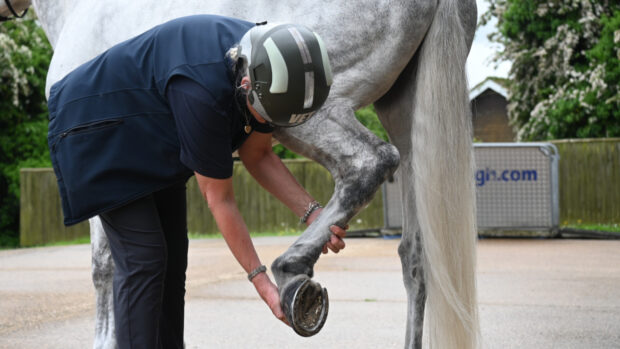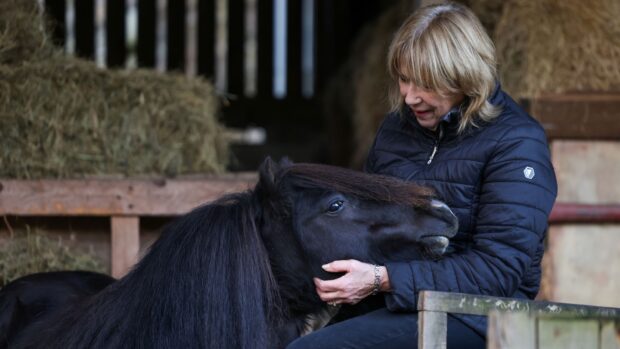Scientists have discovered a “biomarker” that they hope will lead to greater understanding of arthritis in horses.
The study, led by Dr Mandy Peffers at the University of Liverpool, looked into the proteins found in joint fluid in osteoarthritic horses.
Using a pioneering profiling technique, they found that a distinct set of proteins were present in horses with osteoarthritis of the fetlock joint.
Although this is at an early stage, there are hopes it could lead to earlier diagnosis of the condition and more informed management of affected horses.
In the study, the researchers looked at the joints of nine ex-racehorses with severe osteoarthritis and normal joints from nine other ex-racehorses.
Dr Peffers said that the study has led to funding for further research.
A PhD student at the university will now use the same research technique to look at horses at varying stages of the condition.
Diagnosis involves a vet assessing the horse’s lameness, often using flexion tests, which can then be followed by nerve blocks, x-rays and other scans of the joints in question.
“If you can find a biomarker that can identify arthritis at an earlier stage, you can change the management of that horse,” Dr Peffers told H&H.
She added that there is currently no cure for arthritis and management of the condition is limited to pain relief and inflammation control.
Peter Clegg, professor of musculoskeletal biology at the University of Liverpool, added that diagnosing arthritis can be difficult until the condition is quite advanced.
He said it can be difficult to interpret arthritis from x-rays and that they were looking for a “marker” that would help them understand more about the condition.
“The whole hope in treatment is to identify arthritis at an early stage as possible,” he added.
H&H vet Karen Coumbe said: “Anything that helps us know more about arthritis and how to manage it will be welcome.
“It could provide a useful guide on a horse’s future and how best to treat it.”
Dr Peffers presented the findings at the British Equine Veterinary Association (BEVA) Congress on 11 September.
Ref: H&H 19 November, 2015




